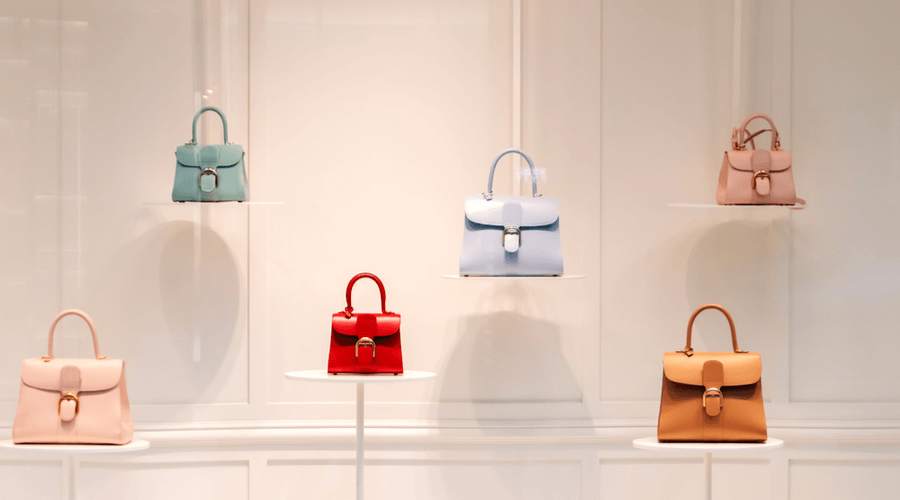Taffi: Democratising personal styling for women in Mena

Throughout history, the most powerful tastemakers have been the wealthy, whose way of life is often portrayed as aspirational and an inspiration for the rest of society. Over the past few decades, innovators have sought to use technology to either replicate a wealthy way of life or democratise access to aspects of it. So where the rich have chauffeurs, private chefs and personal assistants, the masses have Uber, Deliveroo and Alexa. This technological form of democratisation has expanded to the e-commerce space, where a personal shopper and stylist is now available as an online service.
Saudi Arabia-based Taffi, aims to democratise personal styling for the region’s female population and offer a service historically afforded to “the elite”. Launched in 2020 by co-founders Shahad Geoffery and Dio Chen, the startup last month raised an undisclosed Seed round.
“The idea was to build a product that addresses the needs of the female customer and a product that she can use throughout her life. The [personal branding] service is only available for the elite and we are offering it to everyone because every woman deserves to feel like she has support. We want to build the Siri for fashion,” says Geoffery.
The GCC’s fashion retail sector was worth $50 billion by the end of 2019 according to McKinsey. While most of this is rooted in brick and mortar retail outlets, online shopping for clothes and apparel is on the rise. A survey from Mastercard last year revealed that 63 per cent of consumers in the Middle East and Africa (MEA) purchased more clothing online. This rise in online shopping for fashion is paving the way for greater innovation, one that looks beyond the static replication of the offline retail shopping experience. Crucial to this innovation is personalisation and greater usage of data.
Globally, the personal styling industry has seen radical shifts with the emergence of US-based tech startups Stitch Fix and Trunk Club that use big data to recommend personalised products for its customers. The two are incredibly profitable with Trunk Club being acquired by US retail giant Nordstrom, and Stitch Fix serving over three million users, gathering $79.4 million VC funds over its 11 years journey, and listing on the Nasdaq with a $1.4 billion IPO valuation.
In the region, UAE-based men’s shopping startup Mr. Draper is leading the movement alongside Taffi. The former was launched in 2014, gathering $820,000 in funding so far. Strategically positioned, the two startups can target a large base of customers in the UAE and Saudi Arabia where fashion spend per capita ranges between $500 and $1600 respectively, among the highest in the world.
As service-providing platforms, these startups utilise existent delivery and warehouse services of partnering fashion brands, which makes their business model more cost-efficient.
“We act as a new marketing tool for these brands, just like they’d sell on Instagram, they can now sell on Taffi at a higher conversion rate. Because we match every item with every customer based on personalised recommendations, the return rate for the products is less than 1 per cent,” explains Geoffery.
Taffi’s stylists can currently recommend items from Zara, ASOS, H&M, Mango and other brands for their female customers, while customers can also create their own brand affiliations for Taffi based on their preferences. This “demand-focused approach”, according to a 2021 McKinsey report on the state of fashion, is becoming a critical theme for fashion businesses as consumer behaviour shifts towards sustainability, demanding a new assortment planning strategy.
With plans for a future app, Taffi is planning an investment round soon amid strong support from local customers and VC investors alike. This will help accelerate the startup’s performance as it eyes expansions across the GCC and Egypt, as well as Southeast Asia, bracing the cultural and economic diversity that the founders intend to protect in the startup’s makeup.
“The more diversity you have, the more creativity you get, the better your solution is, and the more impactful you can be on a global scale,” says Geoffrey. “We definitely see ourselves as a global company led by a global team, but we want to excel within niche and emerging markets first, especially [in] the Mena region, and then expand from there into more mature global markets.”
Currently, Taffi is working to advance its current digital infrastructure and, unlike Stitch Fix’s AI-based wardrobe recommendations, wants to preserve customer styling services for its remote team of global stylists.
“We are here to take on a load of work from women and give those who don’t have the opportunity to pursue their dreams a chance to do so at the comfort of their home,” says Geoffrey, who explains that the startup aims to provide millions of jobs for women in the Middle East who are housewives or unemployed and are interested in fashion opportunities.
By employing remote stylists, Taffi differentiates itself from both Stitch Fix and Trunk Club by shifting the focus from a marketing-led approach of AI predictive solutions and algorithmic recommendation systems to a human-centred fashion platform. Its onboarding process, according to Geoffrey, only takes a day to complete and requires applicants to pass basic assessments before joining the platform as freelance remote workers.
This has the potential to target the 16.1 per cent of unemployed female population in Saudi Arabia and is well-positioned within wider local initiatives to grow the remote-work sector in the country.


